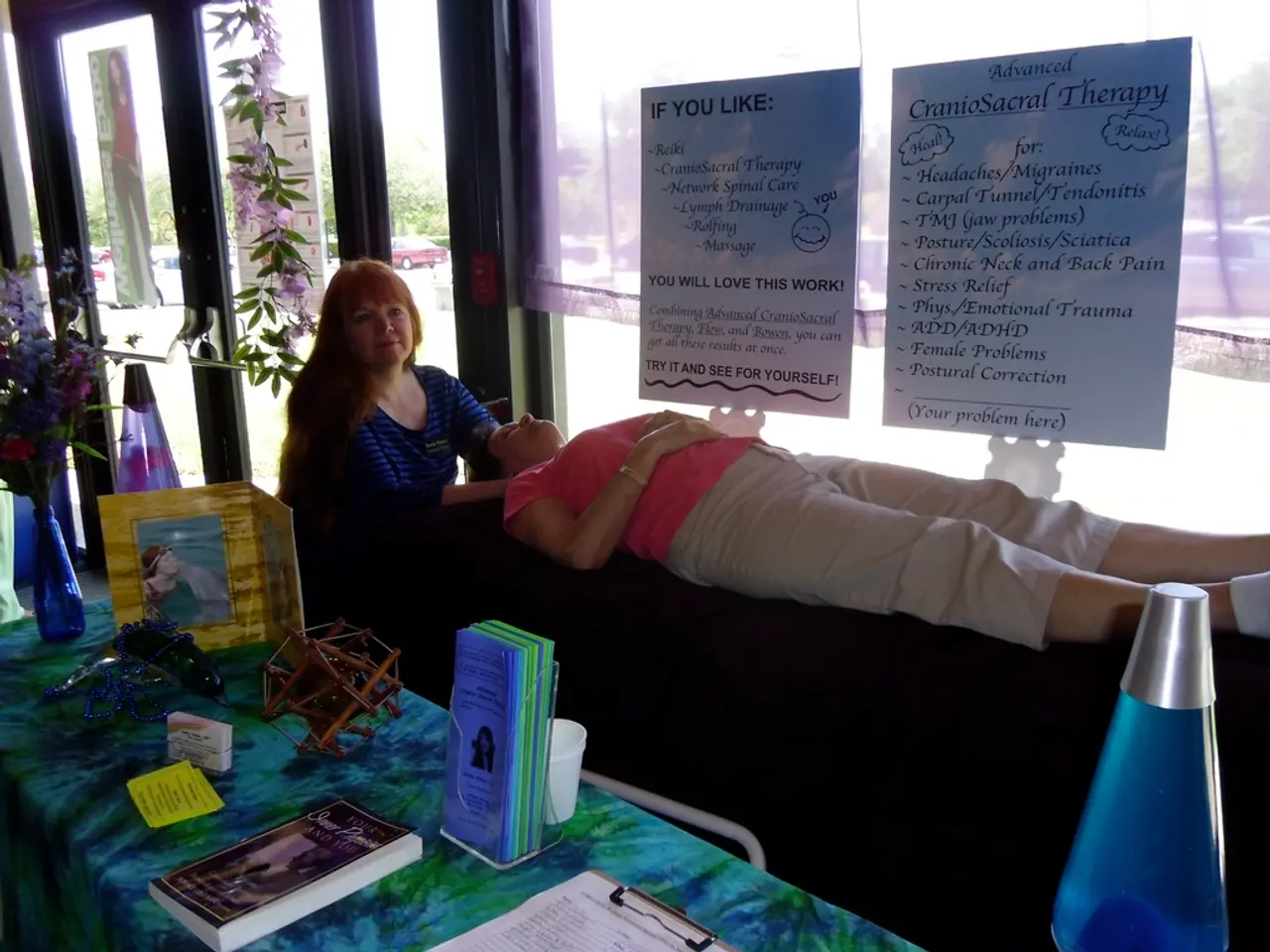Treatments for Social Anxiety Disorder: Psychotherapy, Medications, Self-Care Strategies
Social anxiety disorder (SAD) is a condition that affects many individuals, causing intense anxiety about attending parties, eating in front of others, talking to people they just met, or making eye contact in general. Cognitive behavioral therapy (CBT) is the first-line treatment for SAD, with the core fear underlying SAD being the individual's fear of being negatively evaluated by others.
CBT involves exploring what maintains symptoms, questioning thoughts, reframing them, and facing social fears to disprove biased predictions. If an individual with SAD refuses CBT and medication, the National Institute for Health and Care Excellence (NICE) recommends Interpersonal Therapy (IPT) as an alternative.
In the realm of medication, a doctor will likely start with a selective serotonin reuptake inhibitor (SSRI) when treating SAD. Some approved SSRIs by the U.S. Food and Drug Administration (FDA) for SAD include paroxetine (Paxil), sertraline (Zoloft), and extended-release fluvoxamine (Luvox). Other SSRIs and SNRIs, including venlafaxine, can also be used but should be prescribed with caution.
Both SSRIs and SNRIs can cause discontinuation syndrome, which can have withdrawal-like symptoms. Paroxetine and venlafaxine seem to be associated with the greatest risk for discontinuation syndrome. If taking an MAOI after an SSRI or SNRI, it is essential to wait about 1 to 2 weeks before starting the new medication (or 5 to 6 weeks if previously on fluoxetine) to prevent serotonin syndrome.
More severe and potentially fatal symptoms of serotonin syndrome can include high fever, seizures, irregular heartbeat, and unconsciousness. Symptoms of serotonin syndrome can include irritability, anxiety, confusion, headache, dilated pupils, excessive sweating, shivering, twitching muscles, increased heart rate, high blood pressure, and hallucinations.
Benzodiazepines, such as clonazepam, can help with performance-only SAD on an "as needed" basis, but they can have common side effects such as sedation. Beta blockers can help control and block the physical symptoms of social anxiety, but there's no evidence that they're effective for performance-only SAD, and some guidelines advise against prescribing them for SAD.
For individuals with SAD who do not respond well to CBT or medication, psychodynamic psychotherapy (STPP) designed for SAD might be an option. STPP consists of 25 to 30 50-minute sessions for 6 to 8 months, including education about SAD, emphasis on a core conflictual relationship theme, exposure to feared social situations, help with establishing a self-affirming inner dialogue, and improving social skills.
Other medications, such as gabapentin and pregabalin, can be effective for the generalized form of SAD, but they can have side effects such as dizziness, drowsiness, unsteadiness, involuntary eye movements, and swelling of the arms, hands, legs, and feet.
It's crucial to remember that everyone's experience with SAD and its treatment is unique. If you or someone you know is struggling with social anxiety, it's essential to consult with a healthcare professional for personalised advice and treatment options.
Read also:
- Peptide YY (PYY): Exploring its Role in Appetite Suppression, Intestinal Health, and Cognitive Links
- Toddler Health: Rotavirus Signs, Origins, and Potential Complications
- Digestive issues and heart discomfort: Root causes and associated health conditions
- House Infernos: Deadly Hazards Surpassing the Flames








